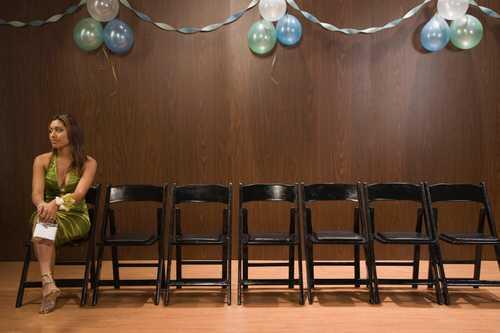The Health Consequences of Loneliness
Curated from: verywellmind.com
Ideas, facts & insights covering these topics:
6 ideas
·5.6K reads
18
Explore the World's Best Ideas
Join today and uncover 100+ curated journeys from 50+ topics. Unlock access to our mobile app with extensive features.
Loneliness Is a State of Mind
Loneliness, according to many experts, is not necessarily about being alone. Instead, if you feel alone and isolated, then that is how loneliness plays into your state of mind.
For example, a college freshman might feel lonely despite being surrounded by roommates and other peers.
293
1.22K reads
Causes
- Loneliness is strongly connected to genetics.
- Situational variables, such as physical isolation, moving to a new location, divorce and the death of someone significant in a person's life can also lead to feelings of loneliness.
- Loneliness can be a symptom of a psychological disorder such as depression.
- Loneliness can also be attributed to internal factors such as low self-esteem.
268
864 reads
Health Risks Associated With Loneliness
Loneliness has a wide range of negative effects on both physical and mental health, including:
- Depression and suicide
- Cardiovascular disease and stroke
- Increased stress levels
- Decreased memory and learning
- Antisocial behavior
- Poor decision-making
- Alcoholism and drug abuse
- The progression of Alzheimer's disease
- Altered brain function
283
966 reads
Close Friends Combat Loneliness
Experts believe that it is not the quantity of social interaction that combats loneliness, but it's the quality.
Having just three or four close friends is enough to ward off loneliness and reduce the negative health consequences associated with this state of mind.
231
793 reads
Loneliness can be overcome
It does require a conscious effort on your part to make a change.
Making a change, in the long run, can make you happier, healthier, and enable you to impact others around you in a positive way.
231
773 reads
Tips to Prevent Loneliness
- Recognize that loneliness is a sign that something needs to change.
- Understand the effects that loneliness has on your life, both physically and mentally.
- Consider doing community service or another activity that you enjoy.
- Focus on developing quality relationships with people who share similar attitudes, interests, and values with you.
- Expect the best. Lonely people often expect rejection, so instead focus on positive thoughts and attitudes in your social relationships.
350
981 reads
IDEAS CURATED BY
Parv Mangal's ideas are part of this journey:
Learn more about personaldevelopment with this collection
The power of gratitude and positive thinking
Ways to improve your mood
Simple daily habits for a happier life
Related collections
Similar ideas
5 ideas
The Health Consequences of Loneliness
verywellmind.com
7 ideas
The History of Loneliness
newyorker.com
7 ideas
Seven ways to overcome loneliness
theguardian.com
Read & Learn
20x Faster
without
deepstash
with
deepstash
with
deepstash
Personalized microlearning
—
100+ Learning Journeys
—
Access to 200,000+ ideas
—
Access to the mobile app
—
Unlimited idea saving
—
—
Unlimited history
—
—
Unlimited listening to ideas
—
—
Downloading & offline access
—
—
Supercharge your mind with one idea per day
Enter your email and spend 1 minute every day to learn something new.
I agree to receive email updates
